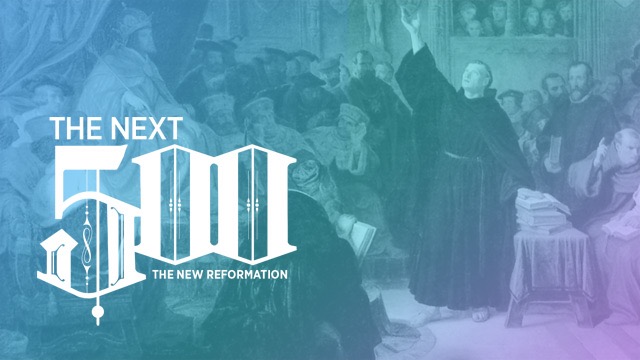 So it’s a time for new year’s resolutions, yet studies reveal four out of five of us will not stick to them and a third of us will not get out of January without breaking them. Why can we not stay true to desired changes we long to see in our lives? It’s because a resolution is an intention, a decision to do or not do something. Let’s admit it. We clearly don’t have the power within us to do what we desire to do. Something is working against us. What we need is a revolution.
So it’s a time for new year’s resolutions, yet studies reveal four out of five of us will not stick to them and a third of us will not get out of January without breaking them. Why can we not stay true to desired changes we long to see in our lives? It’s because a resolution is an intention, a decision to do or not do something. Let’s admit it. We clearly don’t have the power within us to do what we desire to do. Something is working against us. What we need is a revolution.
“Revolution”- from the Latin, revolutio, which means, “a turnaround”- a revolution is “a fundamental change in power or organizational structures that takes place over a relatively short period of time”.
A revolution is an uprising, a mutiny, or insurrection. In spiritual terms a revolution is transformation; it’s a conversion. As you enter into 2018, you need a personal revolution. You need to revolt against all that is not allowing you to flourish, all is keeping you from pursuing God with all your heart. To revolt is to renounce allegiance, to rebel against an authority. Many of us need that attitude in our spiritual lives. In a general sense, we know that putting first things first helps put everything else in it’s place. Most of us know that prioritizing our lives is important, particularly if we want to live balanced lives. But Jesus never talked balance. Jesus talked about an all-out pursuit of one thing. He said: “But seek first the kingdom of God and His righteousness, and all these things will be added to you.” Matthew 6:33 If you don’t have one thing that you’re all about, you will be distracted by a million other things. And what constantly distracts you will eventually define you. You must realize the power of a singular focus in your life. The apostle Paul understood this concept, and if you do, it will revolutionize your life.
“Not that I have already obtained all this, or have already arrived at my goal, but I press on to take hold of that for which Christ Jesus took hold of me. Brothers and sisters, I do not consider myself yet to have taken hold of it. But one thing I do: Forgetting what is behind and straining toward what is ahead, I press on toward the goal to win the prize for which God has called me heavenward in Christ Jesus.” Philippians 3:12-14
A New Year Revolution
1. A holy discontent (v. 12) “not that I have already obtained all this.” You must have a desire for more, a desire to change, and not stay where you are. This is the first and most critical piece of the equation. Many of will not move beyond this first point, because you do not have a holy discontent. Are you satisfied with where you are? Is your singular passion an all-out pursuit of Jesus? And if not, are you okay with that? This is why you don’t have a holy discontent- you need to rediscover who God is and His amazing grace toward you in Christ! I hope I never get over being saved. Have you lost the awe and wonder of being rescued by God? Is your entire life a response to that? We should all be longing for more of Him. No one would trade a bottle of water for gold if they were dying of thirst in the desert. Are you dying of thirst, for more of Jesus? Brethren theologian, J.N. Darby wrote, “necessity finds Him out.” He noted that apart from need, we don’t pursue anything in life. Do you truly sense a need to know more of Jesus? To be drawn closer to Him? Do you have a deep discontent, a dissatisfaction, a restless desire for more of Him? That’s a good thing.
2. A singular focus (v. 13) “one thing I do”. In vs. 8 he stated, “I count everything as loss because of the surpassing worth of knowing Christ Jesus my Lord”. What we need is what Thomas Chalmers, the Scottish minister, called, “the explosive power of a new affection.” Our problem is what Augustine called, “love out of order”, disordered love, misplaced affections. Disordered love is when good things become God things. Misplaced affections need to be replaced by the far greater power of the affection for God, in Christ- for the Gospel- what Christ has already done for us. What you need is a greater satisfaction in Him and the explosive power of a new affection. Chalmers wrote:
“The love of God and the love of the world, are two affections, not merely in a state of rivalship, but in a state of enmity and that irreconcilable, that they cannot dwell together in the same bosom. The heart is not so constituted (made up like that); and the only way to dispossess it of an old affection, is by the expulsive power of a new one.”
Chalmers is speaking of the importance of having one, singular focus. The disciplined pursuit of less, and an all-out chase of Jesus, one magnificent obsession: Jesus Christ. The problem for many of us is not that you don’t have plenty of good things to do, you need to focus on the best thing.
What does this look like? Simply put, it looks like saying NO, and it looks like saying, YES. First saying “no” to lesser things. Some of you the story of Nehemiah. Broken over the state of God’s people during the exile, he went to rebuild the walls around the city of Jerusalem. And to call the people back to God. His rivals, Sandballot, Tobiah, and Gesham, sent for him (seeking to kill him). They wanted him to “come down from your work and meet with us.” And I sent messengers to them, saying, “I am doing a great work and I cannot come down. Why should the work stop while I leave it and come down to you?” Nehemiah 6:3 Nehemiah had a job to do. He was obsessed with one thing. See, the power of a new affection, means that you can say NO to other things, even good things.
If you do not prioritize your life someone else will. As a pastor, this has been my greatest challenge though the years. I am constantly asked to do good things; not always easy things, but good things. So if I am to do what I’ve been called and gifted to do, I must say NO to good things, which means saying no to good people, people I love, and people I want to help. But here’s what I’ve learned: I will never accomplish God’s greatest plans for me, if I do not say no to lesser things. Some of us need to determine that we will NOT come down. Greg McKeown, in his book, Essentialism, writes:
“You cannot overestimate the unimportance of practically everything.” Greg McKeown, Essentialism You may think, “No, everything matters!” If everything matters, then nothing matters. And McKeown’s statement is only true if you have a singular priority, ONE magnificent obsession.
Many of us need to follow Nehemiah’s example: “I’m doing a good work; I will not come down.” Remember this, say it often! Prioritizing your life is not as much, “What do I need to give up?” but “What do I need to go BIG on?” What is my focus? What is that for you? As you think about the great things that God has called you to in these days- what are you up on your ladder doing? Parents: “I’m doing a good work, I will not come down.” Dads: “I’m going to spend more time with my family. I will not come down.” Or perhaps, “I need to care for an elderly parent or friend in this season. I will not come down.” “I need to spend every morning in prayer. I will not come down.” For many of us: “I need to finish something. I will not come down.” “I need to finish my degree, I need to finish this job, finish my commitment. I need to pay off this debt. “I will not come down!” “I need to stay the course in my marriage. I will not quit. I will not come down. “I’ll continue to disciple this person or group.” What is for you? What do you need to finish in this season of your life, in the year ahead? What are you doing on your ladder? If it is God’s call on your life, do not come down.
3. A dedicated plan (vs. 13) – Paul’s one thing involved two things- because you cannot move into a preferred future without leaving the past behind. You can’t say, “I want things to be different in the future, but I’m not going to change anything in the present.” No, you must leave behind whatever doesn’t help you get to your goal. What was Paul’s goal? His ultimate goal was Christ Himself. In order to pursue Christ with all we have, we must rid ourselves of all that is not Him. Following Christ includes repentance and pursuit. Simply put, in a general sense, we must love God and hate sin. Reject your past and embrace the new.
“O you who love the LORD, hate evil! He preserves the lives of His saints; He delivers them from the hand of the wicked. Psalm 97:10
The most common resolutions include: stop eating so much, drinking less, spending less money, exercising more, sleeping more, and volunteering. For the Christ follower, resolutions should include naming SIN in our lives. Martin Luther noted, the entire Christian life is one of repentance. Confess sin and repent. Determine to be more like Jesus- be more loving, forgiving, less judgmental, stop gossiping, quit thinking the world revolves around you, and be more generous. Name a sinful habit. But first you need to stop focusing on your sin, and focus on the one thing- the One Person- who can actually deliver you from that sin. A new year revolution involves overcoming sin in your life.
But here’s what happens. We approach sin by thinking: “I need to work harder to overcome this sin! I will pray more. I will even be accountable. I will tell others about my sin and desire to overcome it. I will read books on it, and I’ll find verses in the Bible to help me. I’ll even memorize Scripture so I can quote it when I’m tempted.” Okay, so just work harder and seek to get better. How’s that working out for you? How’s that going? You must learn this: Moralism says that we can become better people by keeping rules and striving to be good people. But Scripture rejects this idea. Instead, the Bible reveals that character development happens only in the context of freedom. Change comes not from striving in our own strength to be like Jesus, but by developing a habit of being with Jesus, abiding in Him.
Moralism calls for change from the outside-in through cosmetic, behavior modification and sin management. Grace produces change from the inside-out as our hearts are renewed and motivations are transformed. Change happens only as our motivations and desires change. Only the Spirit can do that. I don’t know exactly what this looks like for you but I know where it begins for all of us. I know exactly what this looks like on a daily basis. The picture is found in Luke 10:38-42 where we see Martha “distracted” (by good things, by the way), “much serving”. Jesus said to her, “you’re anxious and troubled about many things, but one thing is necessary. Mary has chosen the good portion, which will not be taken away from her.” Time with Jesus reaps temporary and eternal reward. In 2018 goal-setting and resolutions starts with TIME WITH JESUS.
ONE THING will set everything else in your life in its place. Set your heart on knowing Christ, pursuing Him, and serving Him above all else. This is the essence of the Christian life.
As you decide to pursue Christ above all else, then I challenge you to bring your focus down to one word for the year. Pray, think on it, and then write it down. Share it with a friend or family member. Let it guide you daily as you seek to live out this new year revolution.



 So it’s a time for new year’s resolutions, yet studies reveal four out of five of us will not stick to them and a third of us will not get out of January without breaking them. Why can we not stay true to desired changes we long to see in our lives? It’s because a resolution is an intention, a decision to do or not do something. Let’s admit it. We clearly don’t have the power within us to do what we desire to do. Something is working against us. What we need is a revolution.
So it’s a time for new year’s resolutions, yet studies reveal four out of five of us will not stick to them and a third of us will not get out of January without breaking them. Why can we not stay true to desired changes we long to see in our lives? It’s because a resolution is an intention, a decision to do or not do something. Let’s admit it. We clearly don’t have the power within us to do what we desire to do. Something is working against us. What we need is a revolution.

